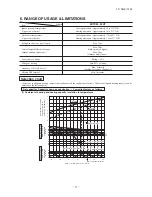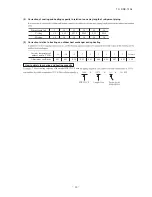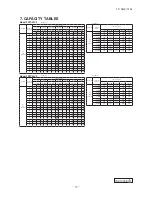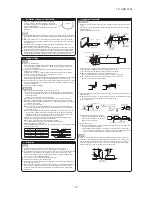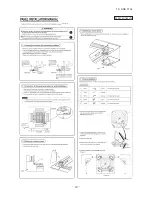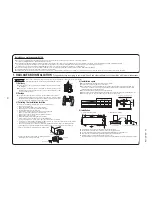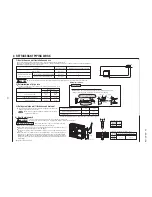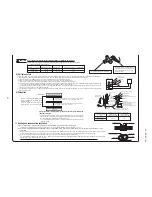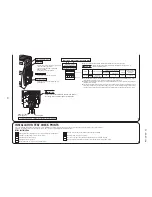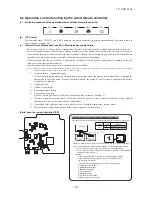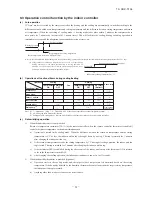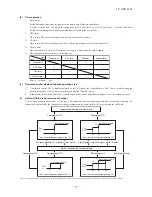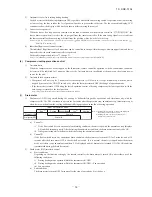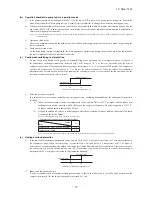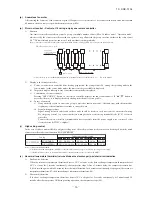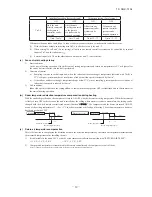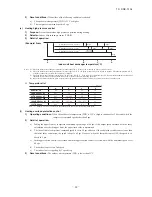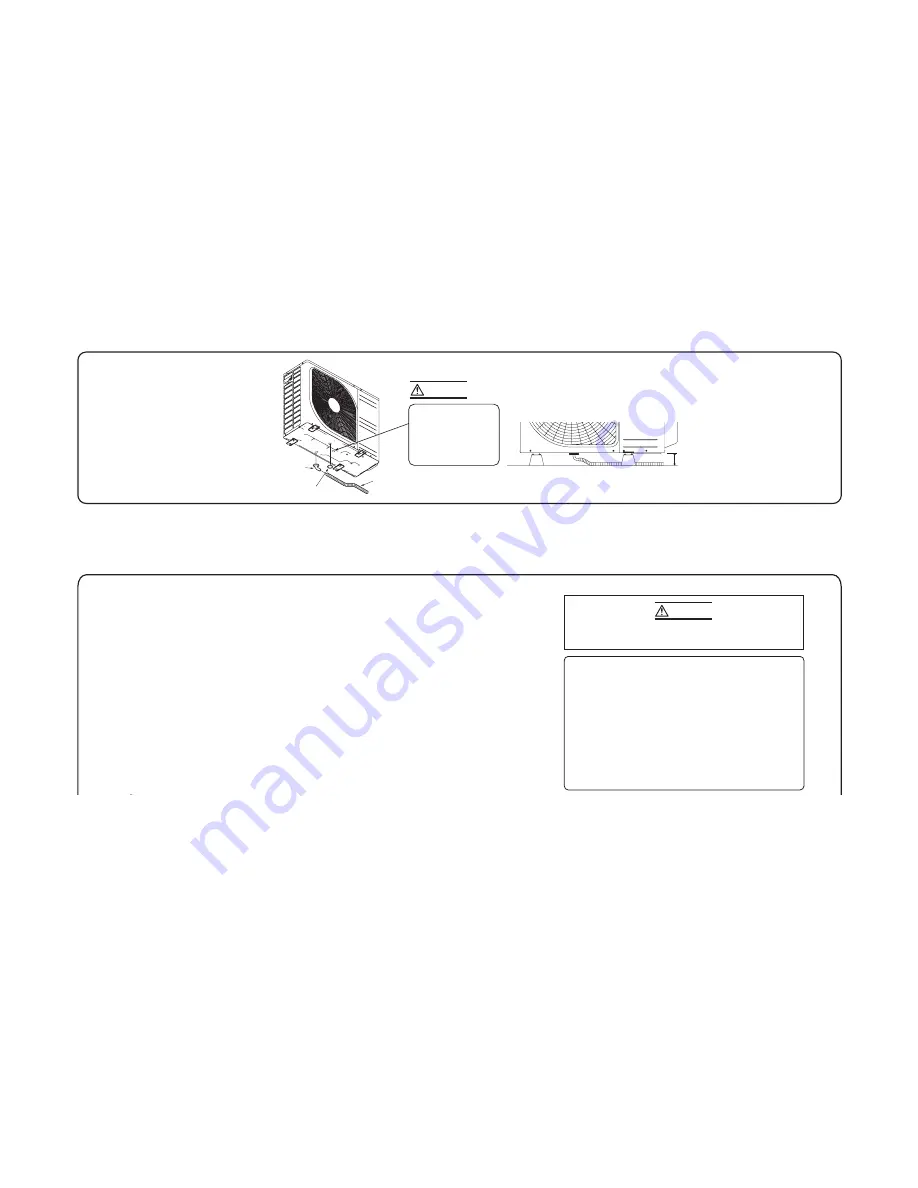
-
27
-
'12 • SRK-T
-126
'09•SRK-DB-087D
3. DRAIN PIPING WORK
●
When condensed water needs to be
led to a drain, etc., install the unit on
a flat base (supplied separately as an
optional part) or concrete blocks.
Then, please secure space for the drain
elbow and the drain hose.
Drain elbow
Grommet
Drain hose
(
To be procured on the installer's part
)
●
Execute drain piping by using a drain elbow and drain
grommets supplied separately as optional parts, where
water drained from the outdoor unit is a problem.
●
Water may drip where there is a larger amount of drain
water. Seal around the drain elbow and drain grommets
with putty or adequate caulking material.
●
Condensed water may flow out from vicinity of operation
valve or connected pipes.
Do not put a grommet
on this hole.
This is a supplementary
drain hole to discharge
drain water, when a large
quantity of it is gathered.
CAUTION
Clearance
Where you are likely to have several days of sub-zero
temperatures in a row, do not use a drain elbow and
drain grommets. (There is a risk of drain water
freezing inside and blocking the drain.)
●
4. ELECTRICAL WIRING WORK
For details of electrical cabling, refer to the indoor unit installation manual.
CAUTION
In case of faulty wiring connection, the indoor unit stops,
and then the run lamp turns on and the timer lamp blinks.
Use cables for interconnection wiring to avoid loosening of the wires.
CENELEC code for cables Required field cables.
H
05
R
N
R
4or5
G
1.5
Harmonized cable type
300/500 volts
Natural-and/or synth. rubber wire insulation
Polychloroprene rubber conductors insulation
Stranded core
Number of conductors
One conductor of the cable is the earth conductor
(yellow/green)
Section of copper wire (mm
2
)
Electrical installation work must be performed by an electrical installation service provider qualified by a power provider of the country.
Electrical installation work must be executed according to the technical standards and other regulations applicable to electrical installations in the country.
●
Do not use any supply cord lighter than one specified in parentheses for each type below.
●
braided cord (code designation 60245 IEC 51),
●
ordinary tough rubber sheathed cord (code designation 60245 IEC 53)
●
flat twin tinsel cord (code designation 60227 IEC 41);
Use polychloroprene sheathed flexible cord (code designation 60245 IEC57) for supply cords of parts of appliances for outdoor use.
●
Ground the unit. Do not connect the grounding wire to a gas pipe, water pipe, lightning rod or telephone grounding wire.
If impropery grounded, an electric shock or malfunction may result.
●
A grounding wire must be connected before connecting the power cable. Provide a grounding wire longer than the power cable.
●
The installation of an impulse withstanding type earth leakage breaker is necessary. A failure to install an earth leakage breaker can result in an
acccident such as an electric shock or a fire.
●
Do not turn on the power until the electrical work is completeted .
●
Do not use a condensive capacitor for power factor improvement under any circumstances. (It dose not improve power factor, while it can cause
an abnormal overheat accident)
●
For power supply cables, use conduits.
●
Do not lay electronic control cables (remote control and signaling wires) and other cables together outside the unit. Laying them together can result
in the malfunctioning or a failure of the unit due to electric noises.
●
Fasten cables so that may not touch the piping, etc.
●
When cables are connected, make sure that all electrical components within the electrical component box are free of loose connector coupling or
terminal connection and then attach the cover securely. (Improper cover attachment can result in malfunctioning or a failure of the unit, if water
penetrates into the box.)
●
Always use a three-core cable for an indoor-outdoor connecting cable. Never use a shield cable.
H05RNR4G1.5 (Example) or 245IEC57

